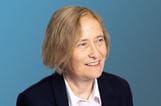Building specialist pro bono expertise in gender-based rights
Related people
Headlines in this article
Related news and insights
Publications: 30 November 2023
Publications: 08 September 2023
Street Child invests in the future as our charity partnership draws to a close
Publications: 14 December 2022
Publications: 08 December 2022
In this article from the latest edition of Increasing Access, our pro bono and community investment magazine, associate Arpita Ashok talks about building her expertise in a specific area of human rights for women and girls.

The photo was taken in Gao, Mali. Credit: UN Photo/Marco Dormino via the Center for Reproductive Rights.
Protecting sexual and reproductive health rights
A&O has been building a relationship with the Center for Reproductive Rights – a global NGO that uses the power of law to advance reproductive rights as fundamental human rights around the world – as part of a wider programme of pro bono work to tackle sexual and gender-based violence. A key project led by New York partner Elaine Johnston, London associate Arpita Ashok and pro bono lawyer Kristin Bong, was a substantial piece of research focusing on access to sexual and reproductive health rights in humanitarian settings, including conflict areas – a growing field of work for the Center.
An international team of 19 lawyers produced a report on whether effective legal mechanisms exist to enforce sexual and reproductive health rights in 16 countries across Africa, Asia, the Middle East and Latin America. The findings confirmed that, while international and domestic legal mechanisms exist to promote these rights, the prevalence of violations and the experiences of victims on the ground show that they are often not being upheld or enforced.
As Arpita explains: “The need for robust protection of sexual and reproductive health rights is particularly acute in conflict affected areas, where sexual and gender-based violence can be both systemic and systematic – for example, when such violence is used as a weapon of war.”
The need for robust protection of sexual and reproductive health rights is particularly acute in conflict affected areas, where sexual and gender-based violence can be both systemic and systematic – for example, when such violence is used as a weapon of war.
Arpita Ashok, London associate
Conflict affected areas also present specific practical challenges in providing the broad spectrum of reproductive rights – including access to sex education, contraception and maternal healthcare – which can have serious consequences such as unsafe abortions, sexually transmitted infections and maternal death.
“We hope the findings from our research and continued collaboration with the Center will enable it to advocate for greater accountability and effective protections from governments, decision makers and NGOs in affected regions,” Arpita says.
“We’re also building on this work by conducting research into creative principles and mechanisms to achieve accountability – such as the concurrent application of international humanitarian, criminal and human rights law, and the role of bodies such as the UN Security Council in holding countries accountable for violations of sexual and reproductive health rights in humanitarian settings, including conflict affected areas.”
Developing specialist pro bono expertise
Arpita has been a central point of contact in building A&O’s relationship with the Center for Reproductive Rights for several years. “Developing this specialism beyond my fee-earning practice has allowed me to become the ‘go-to’ associate across A&O for sexual and reproductive health rights, and also to hone my client care and leadership skills,” she says.
Developing this specialism beyond my fee-earning practice has allowed me to become the ‘go-to’ associate across A&O for sexual and reproductive health rights, and also to hone my client care and leadership skills.
Arpita Ashok, London associate
“It can be challenging to balance pro bono with fee-earning deadlines, but doing this work has enabled me to build my network right across the firm, at all levels of seniority. I have to carve out time for pro bono work, quite often on the weekends, but change-making has never been a 9-5 job!”
Arpita’s proudest achievement is, she says, being asked to represent A&O in four virtual sessions held this year alongside other world-leading experts in sexual and reproductive health rights.
“We’re now assisting with drafting a white paper based on these sessions that will be an authoritative resource in the field and will hopefully make strides towards increasing the protection of rights for women and girls across the world. This kind of large scale, policy-changing impact is immensely satisfying and makes me extremely proud.”
Read the full interview with Arpita Ashok in this issue of Increasing Access – including the first place she’ll visit when travel restrictions ease, and why she’s a great shot with a rifle…


